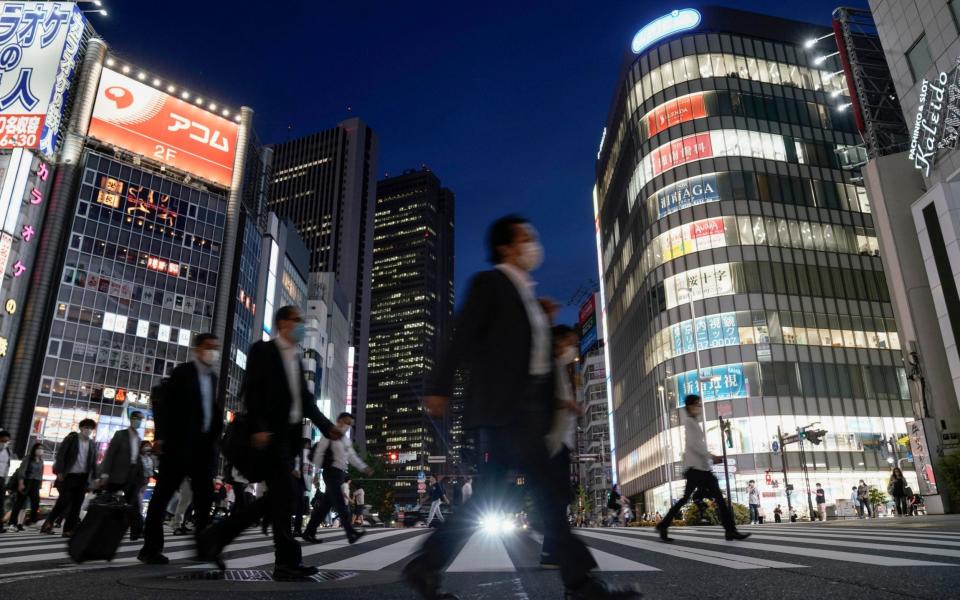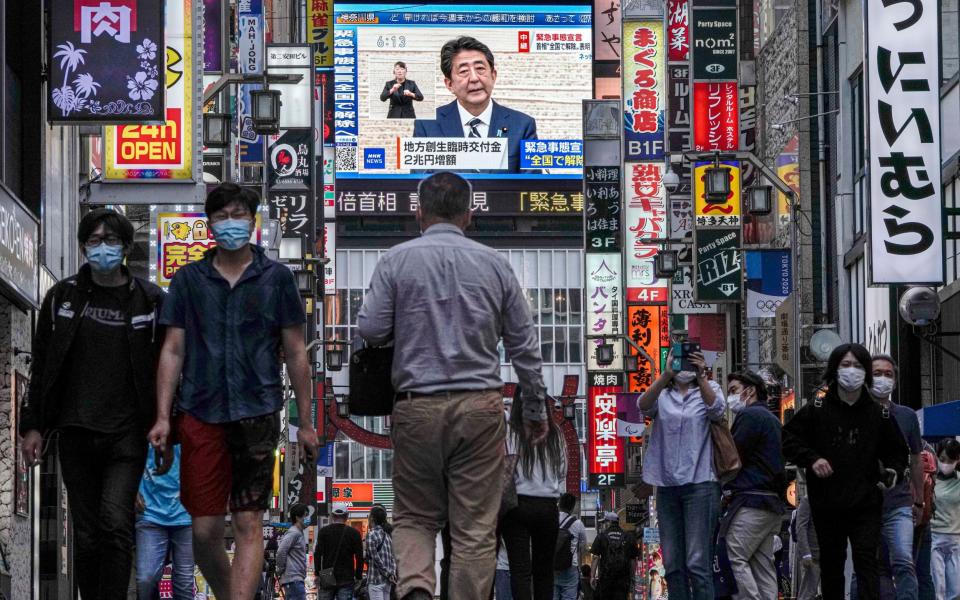Japan to end state of emergency as coronavirus cases dwindle despite lack of strict lockdown


Japan's Prime Minister Shinzo Abe told the nation on Monday that the "Japan model" has effectively beaten coronavirus as he lifted a nationwide state of emergency after seven weeks.
Mr Abe said the "uniquely Japanese way" in which the country had confronted the pandemic – which, unusually, did not include a strict lockdown – had allowed it to escape the large outbreaks and devastating death tolls seen in several European countries and the United States.
Japan has had about 17,000 confirmed coronavirus cases and 850 deaths, but has not implemented widespread testing or hard lockdowns.
At a press conference lifting the state of emergency in Toyko, three surrounding prefectures and the northern island of Hokkaido, bringing those areas into line with other parts of Japan where the state of emergency has already been lifted, Mr Abe said: "We were able to bring the outbreak nearly under control in just a month and a half in a uniquely Japanese way, without enforcing measures with penalties.
"We demonstrated the power of the 'Japan model'."

But experts have struggled to pin down exactly what that model is, or why it appears to have been so successful in a congested nation of 126.5 million people which has the oldest population in the world.
While mask-wearing, home working and social distancing were all advised, Japan's constitution prohibits a compulsory lockdown. Businesses, including restaurants, were allowed to choose whether they remained open, while only 0.2 per cent of the population were tested for the virus.
"It is a mystery to everybody," said Tasuku Honjo, a professor of immunology at Kyoto University and the winner of the 2018 Nobel Prize for Medicine.
There are "several theories" as to why Japan’s infection and death rates from the virus are relatively low, he said at a recent press conference. "One is that people in this country like to be clean, they wash their hands frequently and they do not kiss and hug," he added.

Other suggestions are that the widespread BCG vaccination (against tuberculosis) boosted Japanese people's immunity, while it is also possible that the genes of Asian people are more resistant to the virus than Caucasians, he said.
Another hypothesis is that Japan was hit by an early, weaker strain of the virus before it was able to mutate. Others suggested that the Japanese authorities quickly learned their lesson after being initially criticised for a slow response to the outbreak on the Diamond Princess cruise ship, which docked in Yokohama as an outbreak unfolded that ultimately infected 712 of the 3,711 passengers and crew, killing 14.
Dr Kazuto Suzuki, a professor of public policy at Hokkaido University, credited an early grass-roots response to the outbreak with being a factor in Japan's relative success.
Some 50,000 public health nurses, trained to trace infections of tuberculosis or influenza, were quickly mobilised to track coronavirus, allowing the authorities to isolate people who had the illness and halt its spread.
“It's very analogue – it' not an app-based system like Singapore," Prof Suzkuki told Bloomberg. "But nevertheless, it has been very useful."
But Professor Honjo still believes the government has been remiss in not carrying out large-scale testing to determine the number of people with the virus but not presenting any symptoms.
“Apparently, the number of cases is falling, but we have to think that a second or third wave will come and we have to be prepared for that scenario," he said.
In his address, Mr Abe said he would not hesitate to re-impose the state of emergency if that did happen. He applauded the efforts of the public and asked them to continue to be vigilant, also announcing plans for a second extra budget to support businesses.
Despite Japan appearing to emerge from the pandemic relatively unscathed, Mr Abe's approval ratings have nose-dived. The lack of a strict lockdown has not saved the Japanese economy, which is now in recession, from damage.

